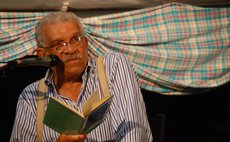Church and society
At the Conclave of Cardinals, following the resignation of Pope Benedict XVI, Pope Francis delivered a brief address, which had a tremendous influence on the Cardinals. He stated that there were two ways of envisaging the Church. One was that of a Church for itself, concerned about its own identity and survival, and the other was that of a Church for the world, a Church which recognized its mission to the world. Clearly, as Pope Francis has demonstrated, he sees himself as called to be at the service of the world and to address issues pertaining to the world.
In history, there has always been a tension between these two models of Church. It is true to say that Church leaders have sometimes sought to promote the interests of the Church, even at the expense of the rest of society. Additionally, Church leaders have sometimes identified themselves with the political directorate for their own preservation. It is this which led the famous English Catholic writer, G.K. Chesterton, to state :
We do not want a Church which moves with the world, but a Church which moves the world.
Recently, we have had the remarkable example of the pursuit of justice by the Church. Archbishop Joseph Harris of Port-of-Spain, Trinidad and Tobago, has established himself as a Church leader who is resolved to challenge and influence the course of society. He identifies injustice, where it exists, and he is not afraid to call it by name.
In observance of a Year of Mercy, instituted by Pope Francis, His Grace Archbishop Harris, launched an appeal for the review of cases of persons who have been incarcerated for long periods without trial.
On June 30, 2016, the Faculty of Law of the University of the West Indies, St. Augustine Campus, held a panel discussion with the Archdiocese, the subject of which was: 'Remand Justice – God's Law'. The Chairperson at the gathering was Professor Rose Marie Belle Antoine, Dean of the Faculty of Law.
What was most extraordinary was that three inmates of the prison were invited to share their experiences as persons on remand. This sort of interaction was most crucial in understanding the plight of such people.
Roger Gaspard, Director of Public Prosecutions, was invited, and he also addressed the gathering. Several young men and women attended the meeting. Indeed, it was very well attended.
In welcoming the participants and introducing the subject, Professor Antoine acknowledged that, even if Trinidad and Tobago was a secular state, she did not think that "the Church should abdicate its role in shaping the moral conscience of a nation." Additionally, she stated that "religion has a special space to engage when we are thinking of Human Rights". She applauded Archbishop Harris for addressing "these burning social issues".
Archbishop Joseph Harris spoke sharply on the injustice. of the system, which showed a lack of respect for human dignity. This referred to those persons, who had not been convicted in a court of law, yet were held on remand for a considerable length of time.
In some cases, he said, persons were held on remand even when they had spent more time than stipulated by the law. He challenged those who were not in favour of releasing such people "until it is their brother or their father or their mother, or somebody whom they love very much".
Archbishop Harris targeted shortcomings in the educational system, as it relates to criminality. "The result," he says, "is that we condemn many young people to being considered failures and to considering themselves as failures." This gives rise to petty crimes which later develop into serious crimes.
The Government was challenged to review their attitude towards persons on remand and prisoners in general. "You cannot expect persons who are put into inhumane conditions against their will for unreasonable periods of time to become more humane. .." He reminded Government of their duty to prepare people in custody for life on the outside.
To tell the truth, what Archbishop Joseph is proposing is almost a complete reversal of the present system. Justice and mercy are frequently proclaimed by Christians, but few of them truly believe that they should extend not only to a few but to all. Vengeance and complete indifference are the watchword. As a retired prisoner officer said at the meeting, "We are largely still a retributive society: lock them up; through away the key!"




